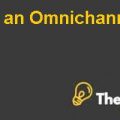
The introduction of Base of Pyramid (BOP) strategy in 2005, in an article “The Fortune at the Bottom of the Pyramid”, diverted the focus of various Multinational Corporations (MNCs) towards the poor which seen as a large segment with huge potential.
The welfare organization starts to develop the poor who live on less than $1 a day, comprised of around 1 billion populations. However, the largest segment was the people who have the low-income from $2 to $5 a day and comprised of 3.8 billion people, which could be the focus of a market-oriented. Individual from this segment have no bank accounts, no access to modern financial services, no phones, lack of food and basic healthcare.
After the work from Prahalad, Novartis’ management decided to embrace the commercial opportunities among the world’s poor. The case tracks the path taken by Novartis through an initiative ArogyaParivar in India and poses the strategic question that what could be the ways to make its supply chain effective, how to target the segment that mainly comprise of female who do not have enough female health educators, how to make the treatment accessible and reasonable in charges, would it be better to launch a new brand for this market, what could be the approaches to divert the consumers to seek healthcare treatment, and ensure compliance with the treatment protocol.













